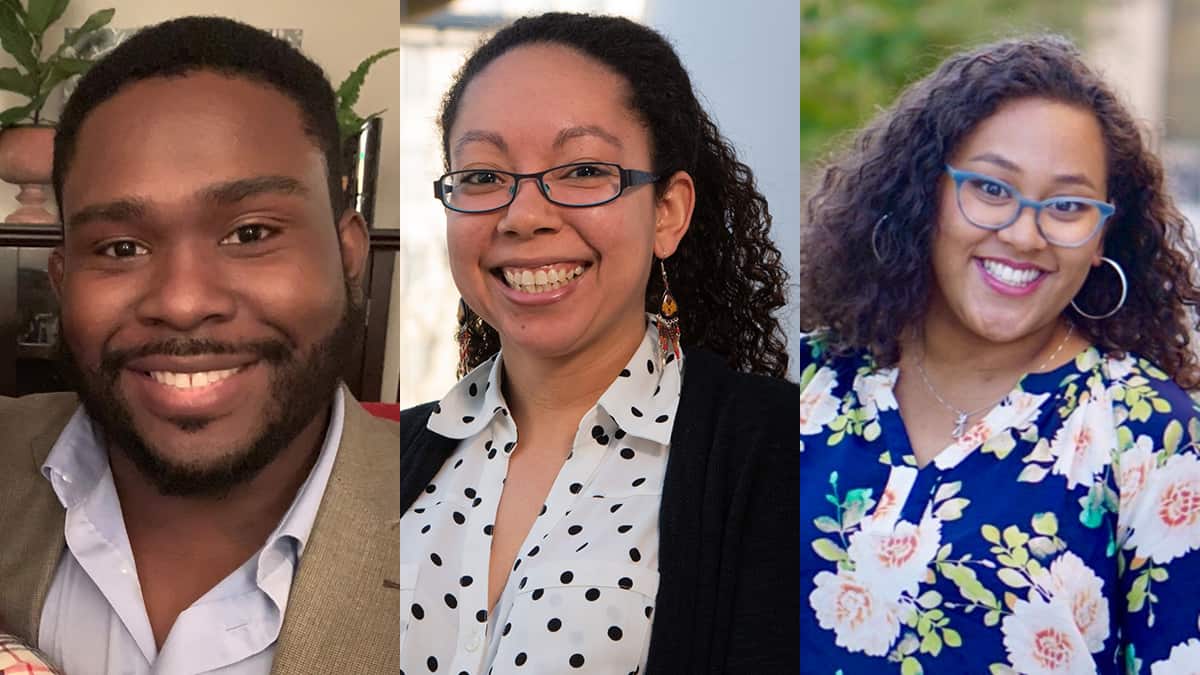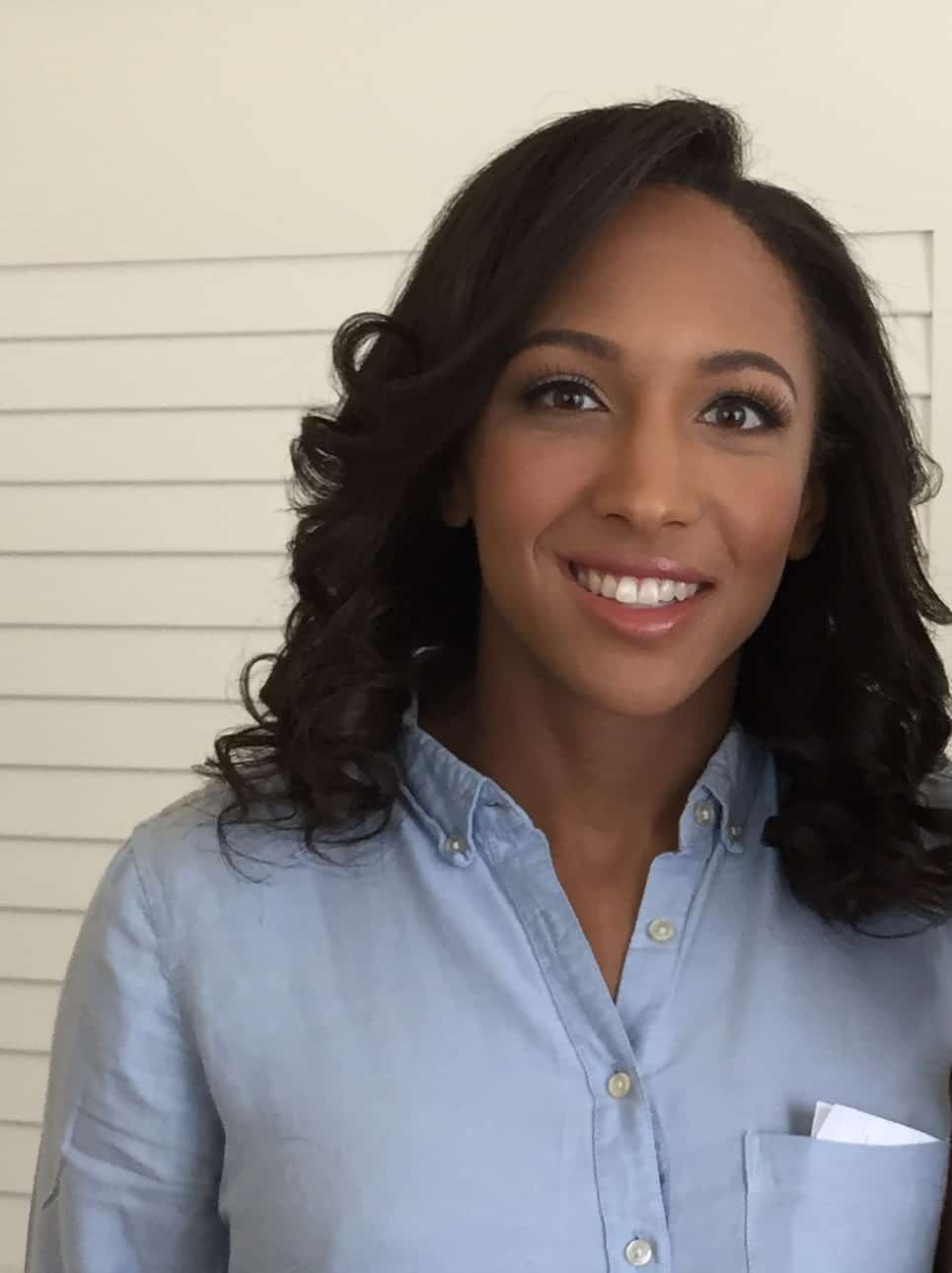This article is the first in a series of essays written by Black physicists and co-published with Physics Today as part of #BlackInPhysics week, an event dedicated to celebrating Black physicists and their contributions to the scientific community, and to revealing a more complete picture of what a physicist looks like.
This past May I earned my doctorate in physics, becoming the first Black woman to do so at Yale University. There are very few Black women with doctorates in physics. Approximately 100 Black women have received a PhD in a physics-related field in the US.
With such a dearth in numbers, at times I experience a sense of loneliness and isolation in physics. Some people are taken aback by my presence in research settings. On a number of occasions, I have been mistaken for janitorial staff in physics departments, in national laboratories and at conferences. This is a common experience among my Black physics colleagues. Anecdotally, the anonymity of e-mail and conference calls smooths over some of the stilted behaviour I otherwise experience working with new colleagues face-to-face. An initial encounter may be awkward, but in time, as new colleagues become familiar with my physics acumen, preconceived notions fade away.
Physicists hail from all socioeconomic and cultural backgrounds. I have had the good fortune of working closely with physicists from all over the world. When we rally around the physics questions at hand, differences in background don’t seem to matter. Close collaboration in physics requires trust, openness and transparency. With these keystones to a relationship established in the physics setting, the pivot to get to know and understand my colleagues on a more personal level is eased. Even though making a groundbreaking measurement or establishing a revolutionary new theory is ultimately what many of us are after as researchers, close relationships developed along our journeys are the sustenance that keeps us going.
A mentor’s impact
As an undergraduate studying physics at Princeton University, I had the great fortune of working with Frank Calaprice. The experience fundamentally changed the trajectory of my life. But for this connection, I would not be in the position I find myself in today. As my senior thesis adviser, Calaprice suggested a topic, in situ purification for liquid-argon dark-matter detectors, that I could actively work on in the laboratory over the course of my senior year. Apparently pleased with my work, Calaprice offered me a position to continue working with him the summer following graduation. I continued on with Calaprice for the next two-plus years. During that time, I worked closely with Princeton PhD students and postdoctoral associates, travelled internationally to work at Gran Sasso National Laboratory in Italy, and developed the confidence to pursue a doctorate in physics.
Funding agencies should invest in making physics research opportunities available to the unconventional candidate
Years later, Princeton held a celebration for Calaprice marking his many contributions to the field. Among the attendees were a physics Nobel laureate and many prominent professors of physics and national laboratory staff scientists. Over the course of the event programme, I learned about the trials and tribulations Calaprice had encountered over his decades-long career. What struck me most was the continued mentorship he had carried out over the years. There were many people just like me whom Calaprice had taken under his wing and worked closely with in their development as scientists. These mentees hailed from all backgrounds. Our common denominator was our interest in physics. We would all like to leave our mark on the field with a groundbreaking discovery, but in many ways each of us can leave the field better than we found it through the people we develop and the connections we make.

#BlackInPhysics week set to celebrate Black physicists
Not everyone is blessed with a Frank Calaprice in their life. However, the fostering of a constructive environment like the one I found myself in can and should be replicated to help bring new people into the field, especially those who otherwise initially think they do not have a place in physics. In my view, funding agencies should invest in making physics research opportunities available to the unconventional candidate – perhaps a student who returns to academia later in life, or a student who lacks a sterling academic record, or a military veteran, or a young parent, and so on – to broaden the base of potential graduate school applicants. Burgeoning young scientists can be found within this talent pool, including up-and-coming Black scientists. The assumption that deciding to pursue a career in physics should occur during one’s undergraduate years is not necessarily well founded. In my case, life experiences helped prompt my path toward physics.
Breaking down walls
Much has been written about the scarcity of Black people with undergraduate and doctoral degrees in physics. It is encouraging that awareness of the issue is becoming more prevalent and that many universities are constructing action plans to rectify the situation. I believe mentorship and investment in people will aid in turning the tide on the flatlined numbers of Black students pursuing physics degrees. Further, by our rallying around the physics, cultural walls and divisions can crumble. We should embrace our common physics interests in order to work through and better understand our differences. By the numbers, Black physicists today are trailblazers, in that few have tread our current path. It’s on all of us to clear the way for people of all backgrounds to follow.
